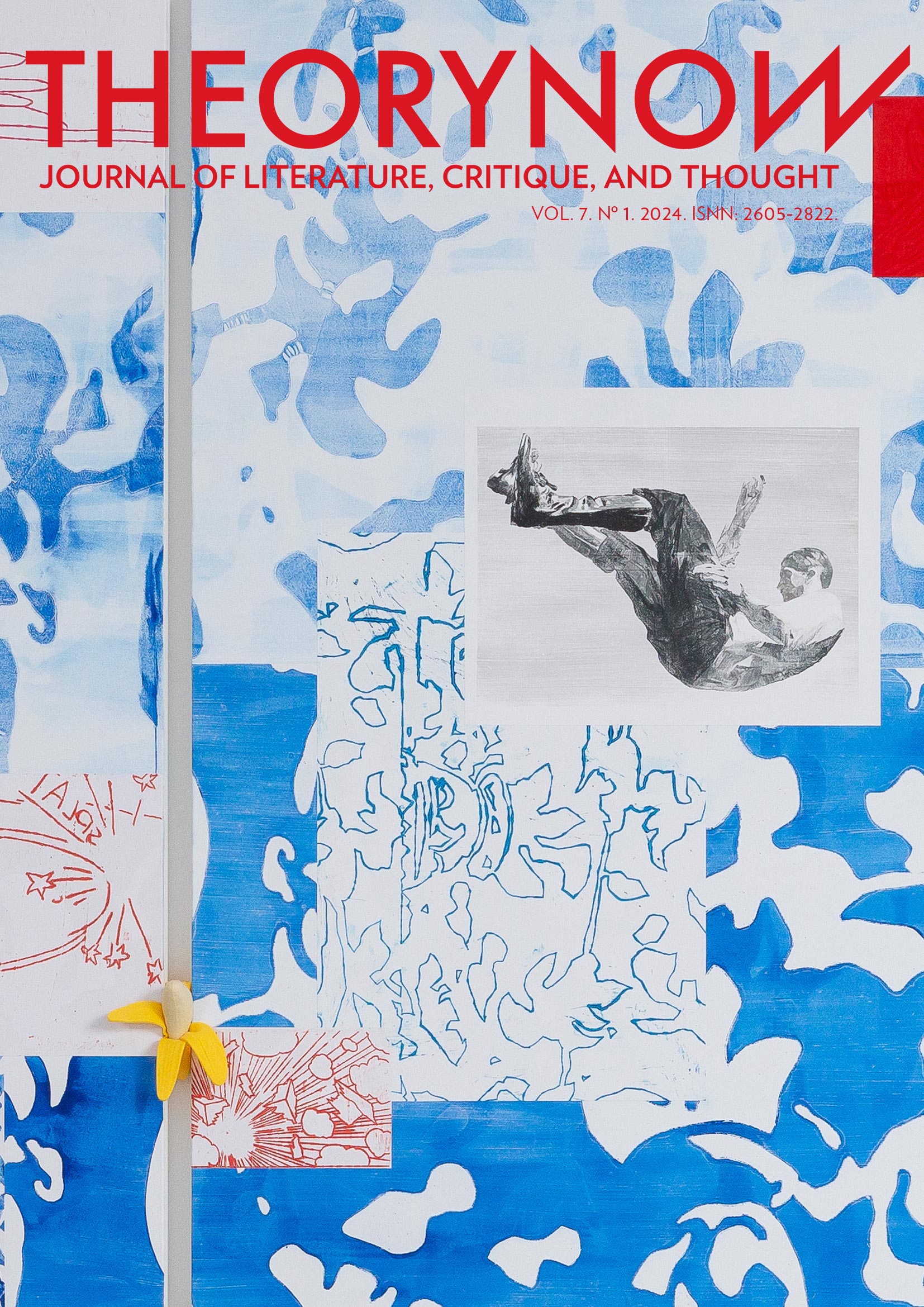The Demand for Reality. The Politics of Narrative and Practices of the Practices of Non-Fiction in the Work of Marie Cosnay and François Beaune
DOI:
https://doi.org/10.30827/tn.v7i1.29860Keywords:
Politics of Literature, Field Literature, Enquiry, Realism, Marie Cosnay, François Beaune, Jacques RancièreAbstract
Since the 1980s, the practice of enquiry has been developed in French literature to the point of redefining the art of the novel, the status of the writer and the practice of reading: "literature" may no longer mean exactly what it meant in the twentieth century. This article attempts to situate this turning point by taking the examples of two emerging writers, François Beaune and Marie Cosnay, who are very different from each other, but who both construct their works with the same urgent need to document social reality. Their books are presented as the results of fieldwork, producing first-hand knowledge. This passion for the real engages their lives, defines their status as writers, and means that books are no longer the Aristotelian beautiful object, soaring in its singularity, but a written thing among others, the product of human labour, a modest testimony to fragile, unfinished and perhaps unfinishable knowledge, raising the question of what literature is.
Downloads
References
Beaune, François. Un Homme louche. Paris, Verticales, 2009.
____. Un Ange noir. Paris, Verticales, 2011.
____. La Lune dans le puits. Histoires vraies de Méditerranée. Paris, Verticales, 2013.
____. Omar et Greg. 2018. Paris, Seuil, « Points-récits », 2020.
____. Calamity Gwenn. Paris, Albin Michel, 2020.
Beaune, François et Stéphane Bikialo. François Beaune. Pour une littérature brute. Bègles, L’Ire des Marges, 2023.
Bon, François. Sortie d’usine. Paris, Minuit, 1982.
Bouju, Emmanuel, éditeur. L’Engagement littéraire. Rennes, Presses universitaires de Rennes, 2005.
Cosnay, Marie et Stéphane Bikialo. Marie Cosnay. Traverser les frontières, accueillir les récits. Bègles, L’Ire des marges, 2022.
Cosnay, Marie et Mathieu Potte-Bonneville. Voir venir. Écrire l’hospitalité. Paris, Stock, 2019.
Cosnay, Marie. Des Iles 2. Paris, Editions de l’Ogre, 2023.
____. Des Iles. Paris, Editions de l’Ogre, 2021.
____. Jours de répit à Baïgorri. Grane, Créaphis, 2017.
____. Nos Corps pirogues. Bègles, L’Ire des marges, 2022.
Demanze, Laurent. Un Nouvel Âge de l’enquête. Paris, José Corti, 2019.
Ernaux, Annie. La Place. 1983. Paris, Gallimard, « Folio », 1986.
____. Mémoire de fille, Paris, Gallimard, 2016.
Fajardie, Frédéric H., Metaleurop. Paroles ouvrières. Paris, Mille et une nuits, 2003.
Florey, Sonya. L’Engagement littéraire à l’ère néolibérale. Villeneuve d’Ascq, Presses universitaires du Septentrion, 2017.
Goux, Jean-Paul. Mémoires de l’enclave. 1986. Arles, Actes sud, « Babel », 2003.
Jablonka, Ivan. L’Histoire est une littérature contemporaine. Paris, Seuil, 2014.
Ovide. Les Métamorphoses. Traduit par Marie Cosnay, Paris, Editions de l’Ogre, 2017.
Phoenix, « Marie Cosnay », no. 34, 2020.
Rancière, Jacques. La Parole muette. 1998. Paris, Hachette, « Pluriel », 2005.
____. Politique de la littérature. Paris, Galilée, 2007.
____. Aisthesis. Paris, Galilée, 2011.
Sartre, Jean-Paul. Qu’est-ce que la littérature ? 1948. Paris, Gallimard, « Idées », 1981.
Simon, Claude. L’Acacia. 1989. Paris, Minuit, « Double », 2004.
Sonnet, Martine. Atelier 62. 2008. Cognac, Le temps qu’il fait, « Corps neuf », 2009.
Viart, Dominique. « Écrire le travail : vers une sociologisation du roman contemporain ? », Raison publique, no. 15, 2011, pp. 13-34.
Viart, Dominique et Bruno Vercier. La Littérature française au présent. Paris, Bordas, 2005.
Downloads
Published
How to Cite
Issue
Section
License
Theory Now. Journal of Literature, Critique, and Thought is an immediate open-access publication which is available at no cost for readers and authors alike. Authors are not charged any kind of fee for the editorial processing of their articles. Reading, downloading, copying, distributing, printing, searching, linking or reusing all published articles for non-commercial uses is allowed on the condition of citing the author, the journal and the editing body. All intellectual material published in this journal is protected under a Creative Commons Attribution-NonCommercial 3.0 Spain license.
Dissemination of the articles in social (Facebook, Twitter, Linkedin, etc.) and scientific networks (ResearchGate, Academia.edu, etc.), public repositories at universities and other institutions, blogs, personal or institutional websites, Google Scholar, ORCID, ResearchID, ScopusID, etc. is strongly encouraged. In all cases, the intellectual property of the articles and any possible monetary profits derived from them belong exclusively to the authors.













